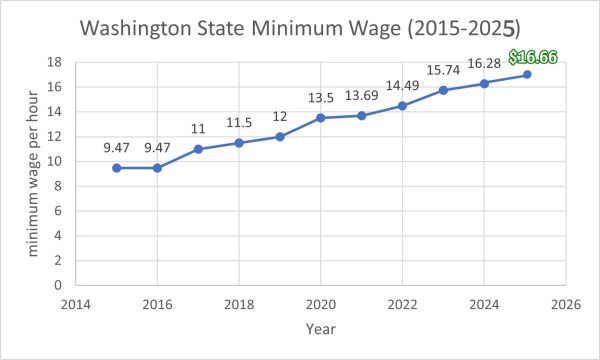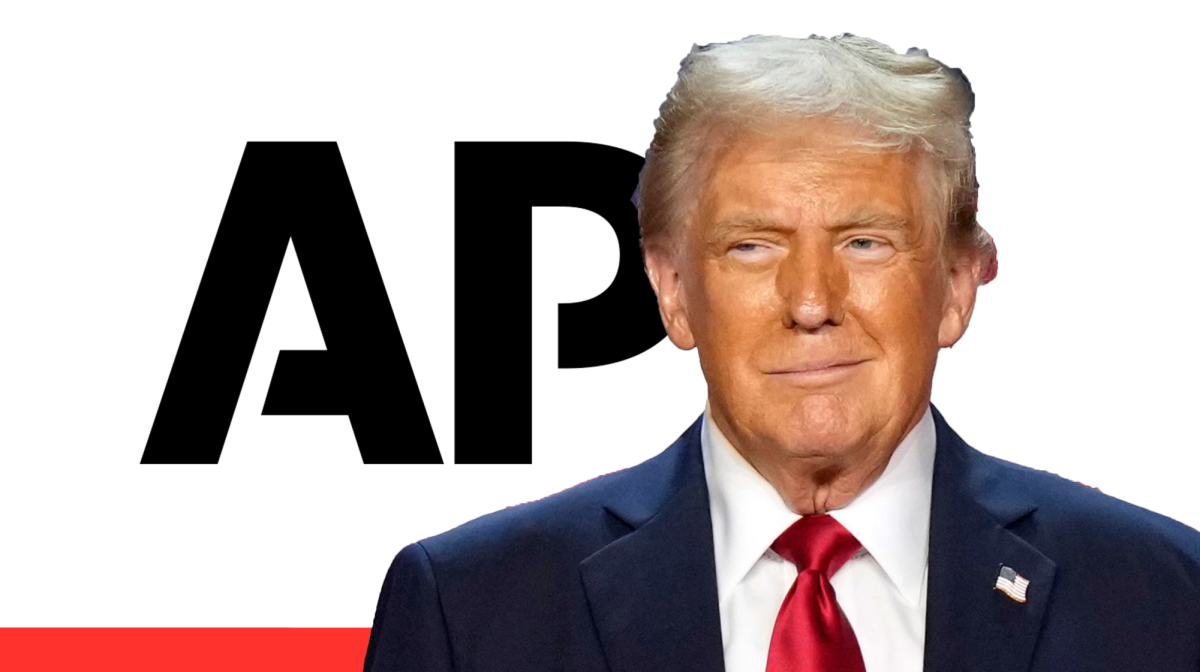Washington was one of 21 states to implement an increase in minimum wage at the start of the new year. The wage went from $16.28 per hour to $16.66 per hour. Many student workers are receiving minimum wage and are directly impacted by the change.

Balancing student life with financial needs is a struggle for many students, who find that although the minimum wage has been increased, the growing costs associated with student living and inflation are keeping them from being able to set themselves up for a secure financial future. Aiden Blanco, a fourth year business major who works in campus dining, said, “So paying for college is kind of a tough one. Ever since I transferred universities, I’ve been on my own.”
Blanco is part of a student price index project on campus where students that are involved go to different stores in Ellensburg and compare the costs of items. This is to determine whether students can or cannot afford the price of living while in school.
Recently, Blanco and his colleagues discovered that inflation has been affecting prices all across Ellensburg. “We have noticed an increase in prices because of inflation,” Blanco said. “I dont think someone could really live by themselves on $16.66 unless they know so much about budgeting.”
However, most students attending CWU are from out of town and have to cover the costs that local students may not. Charlotte McNeely, a first year spanish and psychology major and student employee who works for 88.1 the ‘Burg, is from out of town and pays for her education as well as living expenses with help from her parents. “I have so far chunked into my savings and I am working right now. And my family’s helping me out,” McNeely said.
Landon McKenna is an environmental science major. McKenna, a second year student worker at Fred Meyer where the pay is $17.06 per hour, slightly above minimum wage, said, “Even though I make enough to cover all my needs, I haven’t been able to put money into my savings like I would have hoped but that could be attributed to my spending habits.”
According to the U.S. Department of labor, the Federal minimum wage for 2025 is $7.25. The state of Washington has the highest wage by state laws with California in second at $16.50. Cities like Tukwila, Auburn and Seattle are able to offer wages above the state average.








